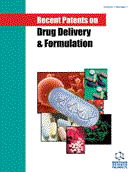Abstract
Archaeosomes made from natural archaeal membrane lipids and/or synthetic lipid analogues have been extensively studied for potential applications in drug and vaccine delivery over the past decade only. Archaeal-type lipids consist of archaeol (diether) and/or caldarchaeol (tetraether) core structures wherein regularly branched and usually fully saturated phytanyl chains (20-40 carbons in lengths), are attached via ether bonds to the sn-2,3 carbons of the glycerol backbone. Archaeosomes constitute a novel generation of liposomes that exhibit high stabilities to low or high temperatures, acidic or alkaline pH, oxidative conditions, high pressure, action of phospholipases, bile salts and serum proteins. These properties associated with a good safety profile are beneficial for nanotechnological applications in drug and gene delivery. Additionally, archaeosome formulations could be used as efficient carriers of antigens and/or adjuvants promoting antigen-specific, humoral and cell-mediated immune responses, in addition to antigen-specific mucosal immune responses in the vaccinated hosts. The immune responses are well sustained over time, and are subject to strong memory responses. Nanodelivery-based vaccinations using archaeosomes could then represent a promising approach for treating and preventing infections, allergies, and neoplastic or cancer diseases. In this review, the few recent US, World and European patents developing archaeosomes for these biotechnological applications in Health are discussed.
Keywords: Archaeosomes, archaeal lipids, drug/gene delivery, vaccine, adjuvant, liposomes
 21
21














